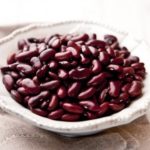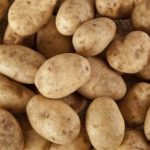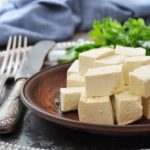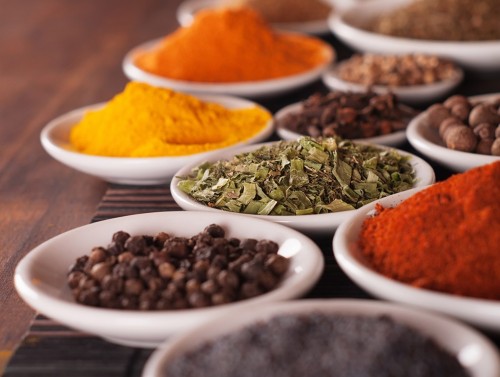10 CHEAP ORGANIC FOODS YOU MUST BUY
Compared to non-organic, there are certain organic foods that are so affordable that you’d be a little crazy to ignore them while grocery shopping.
File this under Not-So-Fun Facts: You’re typically exposed to at least 10 pesticides on a daily basis, according to the USDA’s Pesticide Data Program. And when it comes to eating clean, you probably slip more organic foods into your diet to avoid those icky residues (and to help that whole sustainability thing).
But let’s be honest; even though we know organic food is better for us and the environment, the sticker prices can be pretty high at times. This is not an argument about how you must always buy organic, nor is it a list of which foods you should buy organic no matter what; it’s about what’s so affordable that there’s really no excuse. Read on for the 17 organic foods that are weight-loss friendly foods and give you the most bang for your buck.
by Perri O. Blumberg
Beans
Beans, beans, they’re good for your…wallet.Fiber-rich and wallet friendly, organic beans are well-worth stocking up on for only a few cents more than conventional ones. A can of organic chickpeas, for instance, might set you back $1.39 instead of the $1.09 conventional would cost. If you look for organic beans in the bulk bins, you may find even better deals—and you won’t have to worry about contamination from cans. (Always look for BPA-free cans!)
Tea
Whether you rely on it for its fat-burning prowess or enjoy it for its caffeine jolt, the organic varietals of tea are worth the extra pennies and even cheaper if you buy loose varieties in bulk. “Sampling done by the FDA shows that imported tea contains illegal levels of pesticide residues 26.7 percent of the time,” offers nutritionist Kayleen St.John, RD, at Natural Gourmet Institute in New York City. “But organic tea is not produced with synthetic pesticides and poses less of a health risk.”
by the FDA shows that imported tea contains illegal levels of pesticide residues 26.7 percent of the time,” offers nutritionist Kayleen St.John, RD, at Natural Gourmet Institute in New York City. “But organic tea is not produced with synthetic pesticides and poses less of a health risk.”
Corn Tortillas
Mexican night? Don’t mind if we do. “While sweet corn on the cob  is traditionally considered to be safe, corn [used] in food products, also known as ‘field corn,’ is largely GMO,” says nutritionist Lisa Hayim, MS, RD, and founder of The WellNecessities. In fact, nearly 90 percent of corn in America is genetically modified. “Instead, opt for organic corn tortillas. I love Food for Life’s Ezekiel tortillas or Whole Foods 365 Organic Tortillas,” adds Hayim.
is traditionally considered to be safe, corn [used] in food products, also known as ‘field corn,’ is largely GMO,” says nutritionist Lisa Hayim, MS, RD, and founder of The WellNecessities. In fact, nearly 90 percent of corn in America is genetically modified. “Instead, opt for organic corn tortillas. I love Food for Life’s Ezekiel tortillas or Whole Foods 365 Organic Tortillas,” adds Hayim.
Organic Frozen Fruit
Organic frozen fruit lasts from 6 to 12 months (peace out, rotten banana syndrome), is convenient when a fruit is out of season and is more affordable than fresh organic fruit. “Organic store-brand frozen fruit can be a great option because they have to meet the same criteria as brand names to get the ‘organic’ label. With frozen fruit, you can purchase these labels and save on your daily smoothies, plus you save even more when you don’t have to throw away fruit that’s gone bad.
fruit can be a great option because they have to meet the same criteria as brand names to get the ‘organic’ label. With frozen fruit, you can purchase these labels and save on your daily smoothies, plus you save even more when you don’t have to throw away fruit that’s gone bad.
Potatoes
Wildly versatile and incredibly affordable (a few pounds shouldn’t cost more than $10), potatoes can also last a few weeks, so you don’t have to worry about cooking them right away. And serious “Ugh!”  alert: “A study reported by the Environmental Work Group—the organization that puts out the ‘Dirty Dozen and Clean Fifteen’—found that the average potato had more pesticides by weight than any other produce.
alert: “A study reported by the Environmental Work Group—the organization that puts out the ‘Dirty Dozen and Clean Fifteen’—found that the average potato had more pesticides by weight than any other produce.
Spices
Dried herbs and spices aren’t that expensive to begin with, and are worth forking over a little bit extra to get the organic ones to avoid  scary pesticides. An effortless way to make dishes more flavorful, the non-organic varieties are irradiated (definition: exposed to radiation), which zaps them of their health-supportive properties.
scary pesticides. An effortless way to make dishes more flavorful, the non-organic varieties are irradiated (definition: exposed to radiation), which zaps them of their health-supportive properties.
Apples
“Not all produce is grown equally; some fruits and vegetables are more likely to have pesticide residues,” cautions St. John. “The Environmental Working Group has a ‘Dirty Dozen’ list to help consumers identify high-risk produce. Apples are at the top of the list but, the good news is, their organic counterparts are relatively easy to find and not terribly expensive,” she adds. Grab a two or five-pound bag to enhance your savings if you have a larger family.
“The Environmental Working Group has a ‘Dirty Dozen’ list to help consumers identify high-risk produce. Apples are at the top of the list but, the good news is, their organic counterparts are relatively easy to find and not terribly expensive,” she adds. Grab a two or five-pound bag to enhance your savings if you have a larger family.
Organic Soups
“With organic soups, you get a lot of bang for your buck, especially if you know where to shop! For example, on a given week, Amy’s Organic Soups could be $2.42 at Walmart, compared to $3.69 at regular grocery stores,” says Pavini. “A bonus? You can use organic soup to cook other dishes, giving even slow-cooker recipes and casseroles a tasty kick,” Pavini continues.
Organic Soups could be $2.42 at Walmart, compared to $3.69 at regular grocery stores,” says Pavini. “A bonus? You can use organic soup to cook other dishes, giving even slow-cooker recipes and casseroles a tasty kick,” Pavini continues.
Olive Oil
Sure, it might cost you between $10-20, but it’s mere cents when you consider the number of servings or uses in a bottle. “By buying  organic olive oils, which are mechanically-pressed, you avoid oils that use chemical solvents for extraction,” St. John says. “And given olive oil’s versatility, you might consume multiple servings per day, like in a baked good, salad dressing, or roasted anything.”
organic olive oils, which are mechanically-pressed, you avoid oils that use chemical solvents for extraction,” St. John says. “And given olive oil’s versatility, you might consume multiple servings per day, like in a baked good, salad dressing, or roasted anything.”
Soy Products
“When buying soy, or a soy product, opt for organic since 90 percent of soy production is genetically modified,” cautions Hayim. For the best deals, look for house-brand tofu, or check the frozen aisle for organic, frozen edamame, which stay good for a long time and are great in stir fries and for snacks. “Remember to look at soy milk, tofu, soy beans (edamame), miso paste, and tempeh [all of which fall into the soy family],” advises Hayim.
organic, frozen edamame, which stay good for a long time and are great in stir fries and for snacks. “Remember to look at soy milk, tofu, soy beans (edamame), miso paste, and tempeh [all of which fall into the soy family],” advises Hayim.








